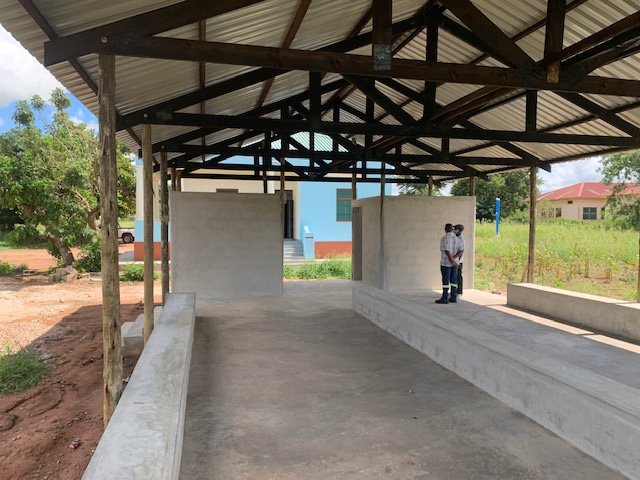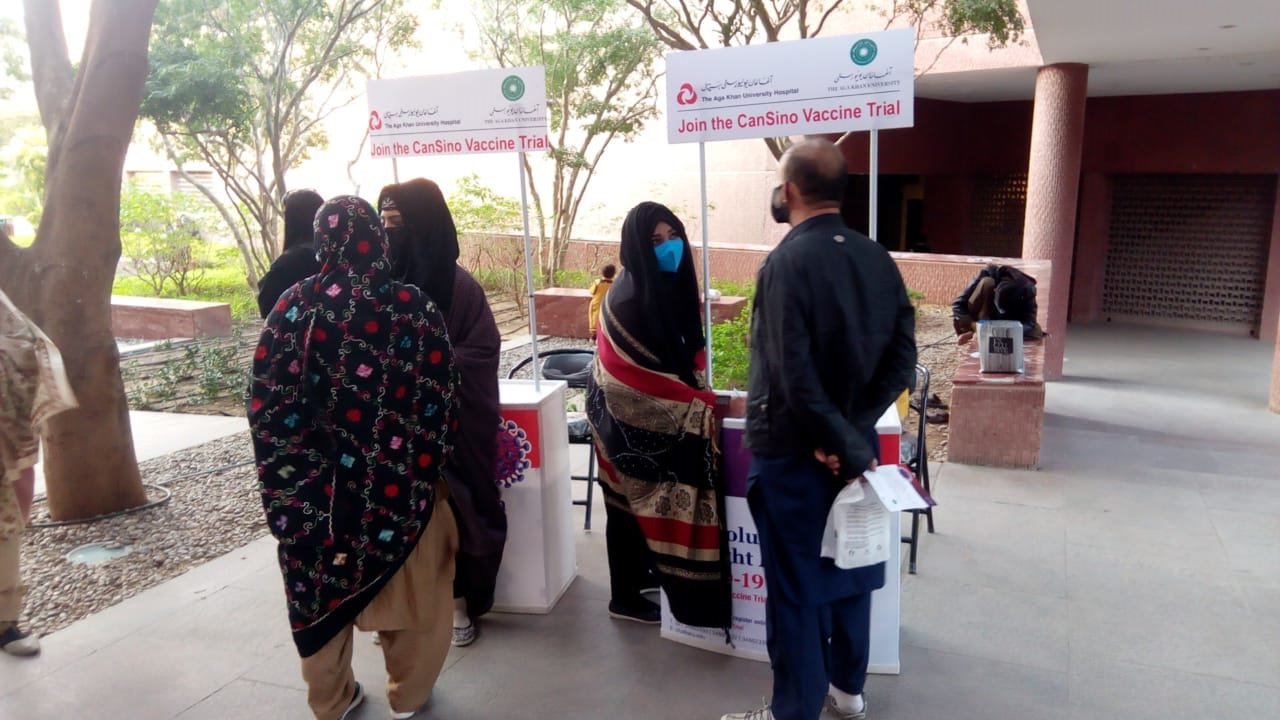When any new vaccine is developed, local studies are the final step to demonstrate efficacy in large and diverse populations—and to obtain licensure (or emergency use authorization) prior to seeking support for introduction.
Often, these studies take the form of Phase 3 clinical trials—in which up to tens of thousands of study participants are enrolled, vaccinated, and observed for clinical outcomes or the immune response is measured and compared to a protective immune response threshold.
“Sites face two major hurdles in initiating and managing rapid, high-volume enrolling trials,” says Kristen Lewis, PhD, MPH, director of clinical operations with PATH’s Center for Vaccine Innovation and Access.
“The first is that many experienced clinical trial sites have not yet built adequate capacity to quickly enroll and follow up the very high numbers of participants required for pandemic vaccine development efforts, especially now when non-pharmaceutical interventions such as physical distancing and the use of protective measures are paramount.
“The second,” Kristen continues, “is that ramping up a site to start a Phase 3 clinical trial can take six months or more depending on existing site capacity and infrastructure, equipment, staffing, community readiness, and the regulatory/ethical review and approval process.”
In the context of COVID-19, where rapid vaccine development of multiple candidates is a global priority and many local trials are needed, Kristen and her colleagues at PATH are working to shorten timelines to study start in low- and middle-income countries by facilitating site capacity enhancements and training for COVID-19 vaccine research.
Paving the way for COVID-19 vaccine introduction
With funding from the Bill & Melinda Gates Foundation and the Coalition for Epidemic Preparedness Innovations, PATH is supporting capacity enhancements at clinical trial sites in Burkina Faso, Colombia, Costa Rica, Haiti, Honduras, Kenya, Malawi, Mali, Mozambique, Niger, and Pakistan.
Specifically, we are supporting the sites in improving infrastructure, procuring equipment, and ensuring research leadership and management staff are adequately trained in international research regulations and site-specific research processes, including establishment of procedures for protecting participant and staff safety while operating research studies during a global pandemic involving a highly infectious disease.

A covered waiting area for trial participants, currently under construction at Magude-Sede Health Center in Mozambique. Photo: Magude-Sede Health Center.
Our team also developed a secure, online portal and a detailed timeline that tracks each trial site’s output and deliverables, and is accessible to both the PATH team and site staff. The portal provides visibility into the status of sites’ progress via reports generated directly from the system in the form of updated weekly lists of expected documents, deadlines, and site points of contact for each deliverable. PATH team members can then conduct targeted follow-up with individual sites.

The online portal PATH created for tracking each trial site's output and deliverables. Photo: PATH.
Though these efforts are focused on COVID-19 vaccine trials, they offer long-term improvements to local research and surveillance capacity.
“Our goal is to provide focused support tailored to the needs of each trial site,” says Joanne Csedrik, RN, MPH, a senior clinical research manager working on the site readiness team. “That includes targeting gaps across clinical research operations in order to help prepare them for high enrollment, optimizing regulatory and ethical approval pathways for rapid study start, upgrading equipment and infrastructure, and engaging local stakeholders through community consultations.”
Soumya Hazra, MD, a clinical research manager on the site readiness team working at PATH India, adds: “The robust training program in research regulations conducted for the core team in the relevant language is integrally important for fast-tracking site preparations and study start.”
Leveraging long experience
PATH has extensive experience conducting Phase 3 trials around the world—having run such trials for vaccines against rotavirus, polio, pneumococcal disease, and more. Tushar Tewari, MD, a senior medical officer working at PATH India, has helped lead Phase 3 trials in India, Vietnam, Kenya, and Ghana, and is now part of the site readiness team preparing new sites for COVID-19 vaccine trials.
“Preparing to conduct Phase 3 vaccine trials can be a tremendous amount of work,” says Tushar. “This includes hiring and training enough staff, procuring appropriate equipment and storage units for study materials, developing standard operating procedures for everyone to follow, and much more.”

A sign-up station for the COVID-19 vaccine clinical trial at Aga Khan University in Pakistan. Photo: Aga Khan University Clinical Trials Unit.
Due to the great urgency surrounding COVID-19 vaccine introduction—and the huge effort associated with preparing for and running a Phase 3 trial—it’s critical to ensure that sites across the globe are equipped to quickly take on these studies to accelerate COVID-19 vaccine research and introduction. Because of the novelty of COVID-19 vaccines, there is also a growing need for local capacity to perform effectiveness studies in order to measure how well the vaccine is working in routine conditions after vaccine introduction has begun.
PATH’s work to prepare these 11 research sites, that include a total of 31 clinics, for large Phase 3 trials, also cements their capacity to conduct effectiveness studies as well as other types of trial designs (such as immune endpoint studies). Two other international organizations are conducting similar work with other trial sites worldwide, and, with PATH, they pool high-level site updates on a COVAX dashboard with the goal of promoting and attracting vaccine manufacturers to these sites for their upcoming trials.
Vaccine equity means more than distribution
In a pandemic, no one is safe until everyone is safe. While COVID-19 vaccines are starting to roll out globally, additional clinical trials are needed to continue growing the pipeline of approved products to improve access and ensure a sustainable supply of vaccines worldwide.
We also need to know how these vaccines work in diverse settings around the world, which is why we’re partnering with investigators and trial sites in low- and middle-income countries where vaccine manufacturers may not typically decide to conduct late-stage trials.
“Many of the PATH-supported sites have generated interest from one or more manufacturers, and there are already manufacturer commitments to conduct trials at some of the sites. One site has even completed enrollment on its first Phase 3 trial, so this project is already starting to see a return on investment,” says Kristen.
“And this work has the potential for longer-term impact as well, since the sites are now equipped to conduct future large-scale, rapid-enrollment trials for all types of vaccines beyond just those for COVID-19, maybe even for the next vaccine-preventable pandemic.”
PATH’s COVID-19 Site Readiness Project team includes Allison Clifford, Joanne Csedrik, Jorge Flores, Soumya Hazra, Heidi James, Kristen Lewis, Shadia Lopez, Jennifer O’Reilly, Shannon Shanahan, and Tushar Tewari.



